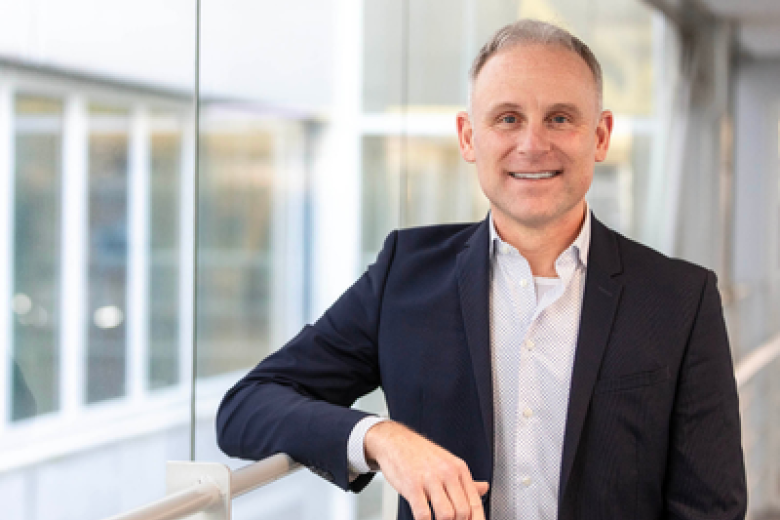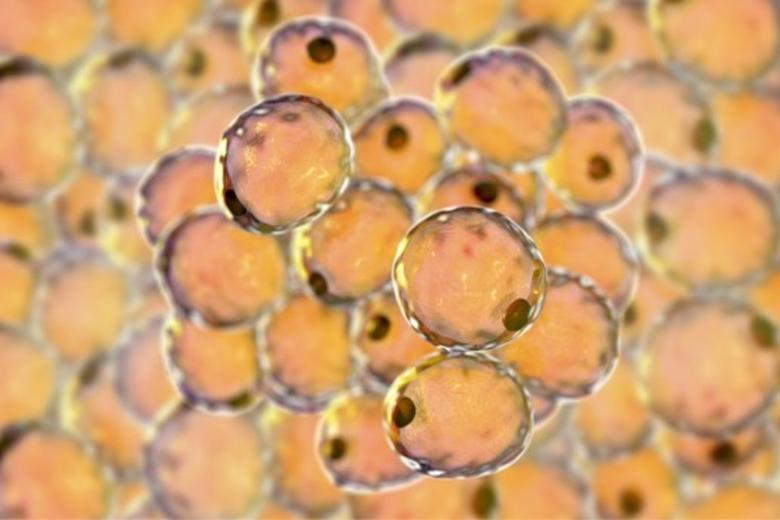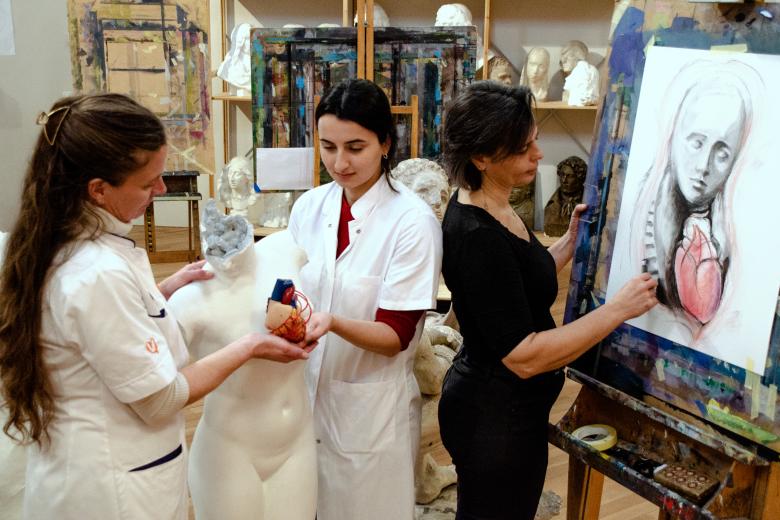This summer, the HeArt Ma’at racing crew ran Maastri
When we asked about her favourite course, she eagerly shared, "My favourite course was Digitalisation and Politics. It offered a fascinating exploration of how digital technologies influence political processes, governance, and public opinion. The discussions on digital democracy, algorithmic power, and the societal implications of digital policies—especially in applied contexts like e-voting in Estonia—were incredibly thought-provoking."
Of course, every academic journey has its challenges, and she was no exception. Reflecting on the toughest moments, she told us, "Balancing group work and individual study was a challenge when I first started. The PBL approach, which emphasises teamwork, required me to get used to preparing for tutorials and engaging in meaningful discussions with my fellow students. I had to manage my time efficiently and learn how to integrate different perspectives into our collaborative work."
Looking back at her time in Maastricht and at FASoS, she remarked, "I look back fondly on my time in Maastricht. The international and open-minded atmosphere enriched my learning experience. The city itself is perfect for students, with its vibrant cultural life and student-friendly environment. It made my time here unforgettable."
When asked to describe her student life in Maastricht, she recalled, "Student life in Maastricht was lively and inspiring. I was involved in study groups, student organisations, and cultural events. The city isn't too large, so it was easy to connect with others, explore cafés, and enjoy nature by the Maas River. It felt like a close-knit, yet dynamic, community."
Although she is currently focused on her studies, she shared a bit about her future aspirations: "At the moment, I am pursuing a master’s degree in Business Intelligence and Smart Services, so I’m not working right now. I’m looking forward to continuing my studies and exploring how data science and smart services intersect in the business world."
We were curious about how the BA Digital Society had influenced her current path, and she explained, "The bachelor's programme gave me critical thinking and analytical skills that are essential for both my master's programme and any future career. The courses on digital tools and their societal impacts provided a broader understanding of how technology shapes the real world, not just from a technical standpoint. The PBL approach also taught me how to work both independently and collaboratively, which I apply every day."
Finally, we asked if she still kept in touch with people from FASoS, and she said, "Yes, I do! I still stay in touch with some of my peers, and I occasionally reconnect with professors who supported me during my studies. It's inspiring to see where everyone has ended up, and it's great to exchange insights from our professional journeys. I also work occasionally as a student ambassador, welcoming new students and attending Open Days."
Her story is a reminder of how studying in an interdisciplinary and international environment can shape both academic and personal growth, and the lasting connections that can be made along the way.
When asked about her favourite course or topic, she shared, "I don't think I had a favourite course throughout the programme, but I can say that one of my favourite topics was exploring the relationship between media and culture. It is fascinating to examine how technology influences the way we communicate and create meaning in a globalised world. This subject combines my passion for creative expression with a critical lens on contemporary issues."
Reflecting on her most memorable project or assignment, she told us, "Rather than one specific project, I would say that the most memorable aspect of the programme was the variety of papers we worked on. Each assignment encouraged me to explore different methodologies, whether it was analysing historical texts, applying theoretical frameworks, or even conducting small-scale research. This really allowed me to approach topics creatively and critically, making each paper unique and a rewarding experience. These projects deepened my understanding of the subject matter and helped me develop essential skills, like writing, analysis, and time management."
When we asked how studying Arts and Culture has shaped her critical thinking and analytical skills, she explained, "For me, the Arts and Culture programme has really taught me to question assumptions and approach problems from multiple angles. Whether analysing a historical event or a contemporary issue, I’ve always learned to dig deeper and consider broader contexts. This has helped me become more comfortable with uncertainty."
Mirela also had the opportunity to engage in extracurricular activities, internships, and exchange programmes. She shared, "During my studies, I participated in extracurricular activities and had the chance to be a board member of two student organisations. I also completed multiple internships, which enriched my experience and rewarded me professionally. Additionally, I did a Minor in Entrepreneurship at the business faculty, which was an experience I do not regret and would encourage any student to take on. All these experiences were rewarding because they allowed me to collaborate with people from different disciplines while also honing practical skills."
She told us how the programme has prepared her for her future academic and career aspirations, saying, "I think the programme’s emphasis on interdisciplinary research and self-directed learning has given me the best foundation for any career that values creativity and critical thinking. Whether I pursue further studies or enter the cultural or communications sector, I feel equipped to adapt to any situation and contribute meaningfully to any future career I want to pursue."
When asked about her experience studying in Maastricht, both on and off campus, she said, "Maastricht is definitely an inspiring place to study because it has a vibrant mix of history and modernity, whether in the city itself or in the people who live and study here. The international atmosphere makes it easy to meet people from different cultures, and there’s always something happening—whether it’s a cultural event or a nice moment to spend with friends at a café."
Describing the sense of community at FASoS, she told us, "The sense of community at FASoS is extremely welcoming and collaborative. I’ve made so many meaningful connections with classmates through group work discussions, whether in my own tutorials or across different programmes. The professors are also very approachable and genuinely invested in your growth, both as a person and as a student. For me, these relationships have made my academic journey so much more enriching."
When we asked what makes FASoS unique compared to other universities, Mirela replied, "The combination of PBL, the strong focus on interdisciplinarity, and the international setting of Maastricht is what makes FASoS stand out. It’s a place where you’re always encouraged to think critically, collaborate with others, and engage with global perspectives. This makes it feel unique compared to more traditional academic environments."
Mirela also shared some advice for prospective students considering the programme: "Be open to stepping out of your comfort zone. For me, this programme challenged me to think critically and work collaboratively, which can be daunting at first, but it is incredibly rewarding. Take advantage of all the resources and opportunities available during your studies, and don’t hesitate to ask for help when you need it."
If she could give one piece of advice to her past self before starting the programme, she said, "I would tell myself to trust the process—it’s okay to feel overwhelmed at times, but you have to lean into those moments, as they often lead to the most growth. Also, don’t hesitate to connect with your peers and professors early on because building these relationships will make all the difference."
Reflecting on the most rewarding part of her experience, she told us, "The most rewarding part has definitely been discovering how all these different fields of study are interconnected, but also realising how I can bring my passions and skills into conversations that matter. It’s really given me the confidence to explore and express my ideas in ways I hadn’t had the chance to do before."
Finally, when we asked how the programme has influenced her worldview or personal development, she shared, "The Arts and Culture programme has broadened my perspective on what culture is and how it shapes who we are. I think it’s made me more empathetic, reflective, and caring about the world around me. It’s not just an academic experience; it has been a transformative journey that has helped me grow both personally and intellectually."
December 2024
TTN Workshop: Gender and inclusivity in reseach
Once a year, MHeNs organises a Topics in Translational Neuroscience workshop (TTN).
This year the topic is sex and gender diversity and inclusivity in neuroscience research.

Jeroen Hendriks appointed new Professor of Nursing Science
Jeroen Hendriks is dedicated to bridging the gap between academic research and clinical practice in integrated care, ensuring that innova


PhD Defence Janek Kretschmer
- PhD Defence
"Effective Giving Behavior; How Pledges, Fairness, and Information Influence Charity Choices"

